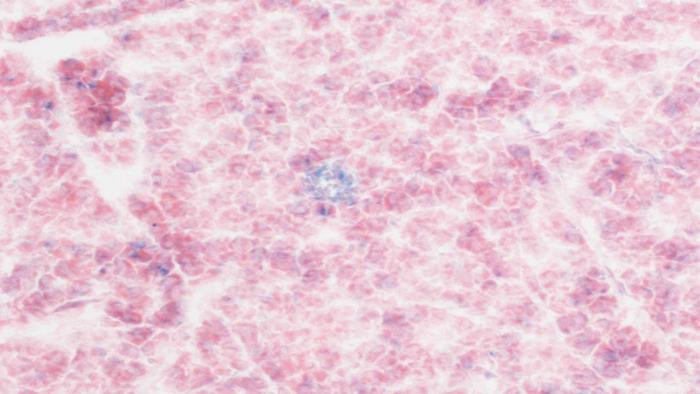The fountain of youth has eluded explorers for ages. It turns out the magic anti-aging elixir might have been inside us all along.

Credit: Amor Vegas lab/Cold Spring Harbor Laboratory
The fountain of youth has eluded explorers for ages. It turns out the magic anti-aging elixir might have been inside us all along.
Cold Spring Harbor Laboratory (CSHL) Assistant Professor Corina Amor Vegas and colleagues have discovered that T cells can be reprogrammed to fight aging, so to speak. Given the right set of genetic modifications, these white blood cells can attack another group of cells known as senescent cells. These cells are thought to be responsible for many of the diseases we grapple with later in life.
Senescent cells are those that stop replicating. As we age, they build up in our bodies, resulting in harmful inflammation. While several drugs currently exist that can eliminate these cells, many must be taken repeatedly over time.
As an alternative, Amor Vegas and colleagues turned to a “living” drug called CAR (chimeric antigen receptor) T cells. They discovered CAR T cells could be manipulated to eliminate senescent cells in mice. As a result, the mice ended up living healthier lives. They had lower body weight, improved metabolism and glucose tolerance, and increased physical activity. All benefits came without any tissue damage or toxicity.
“If we give it to aged mice, they rejuvenate. If we give it to young mice, they age slower. No other therapy right now can do this, ” says Amor Vegas.
Perhaps the greatest power of CAR T cells is their longevity. The team found that just one dose at a young age can have lifelong effects. That single treatment can protect against conditions that commonly occur later in life, like obesity and diabetes.
“T cells have the ability to develop memory and persist in your body for really long periods, which is very different from a chemical drug, ” explains Amor Vegas. “With CAR T cells, you have the potential of getting this one treatment, and then that’s it. For chronic pathologies, that’s a huge advantage. Think about patients who need treatment multiple times per day versus you get an infusion, and then you’re good to go for multiple years.”
CAR T cells have been used to treat a variety of blood cancers, receiving FDA approval for this purpose in 2017. But Amor Vegas is one of the first scientists to show that CAR T cells’ medical potential goes even further than cancer.
Amor Vegas’ lab is now investigating whether CAR T cells let mice live not only healthier but also longer. If so, society will be one mouse step closer to the coveted fountain of youth.
Journal
Nature Aging
DOI
10.1038/s43587-023-00560-5
Article Publication Date
24-Jan-2024




